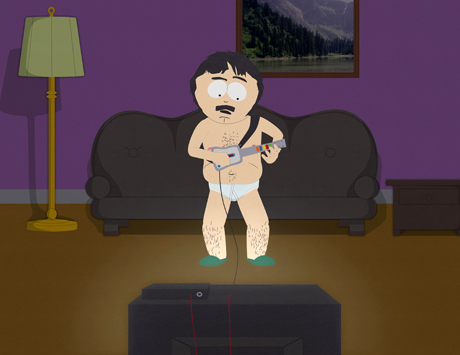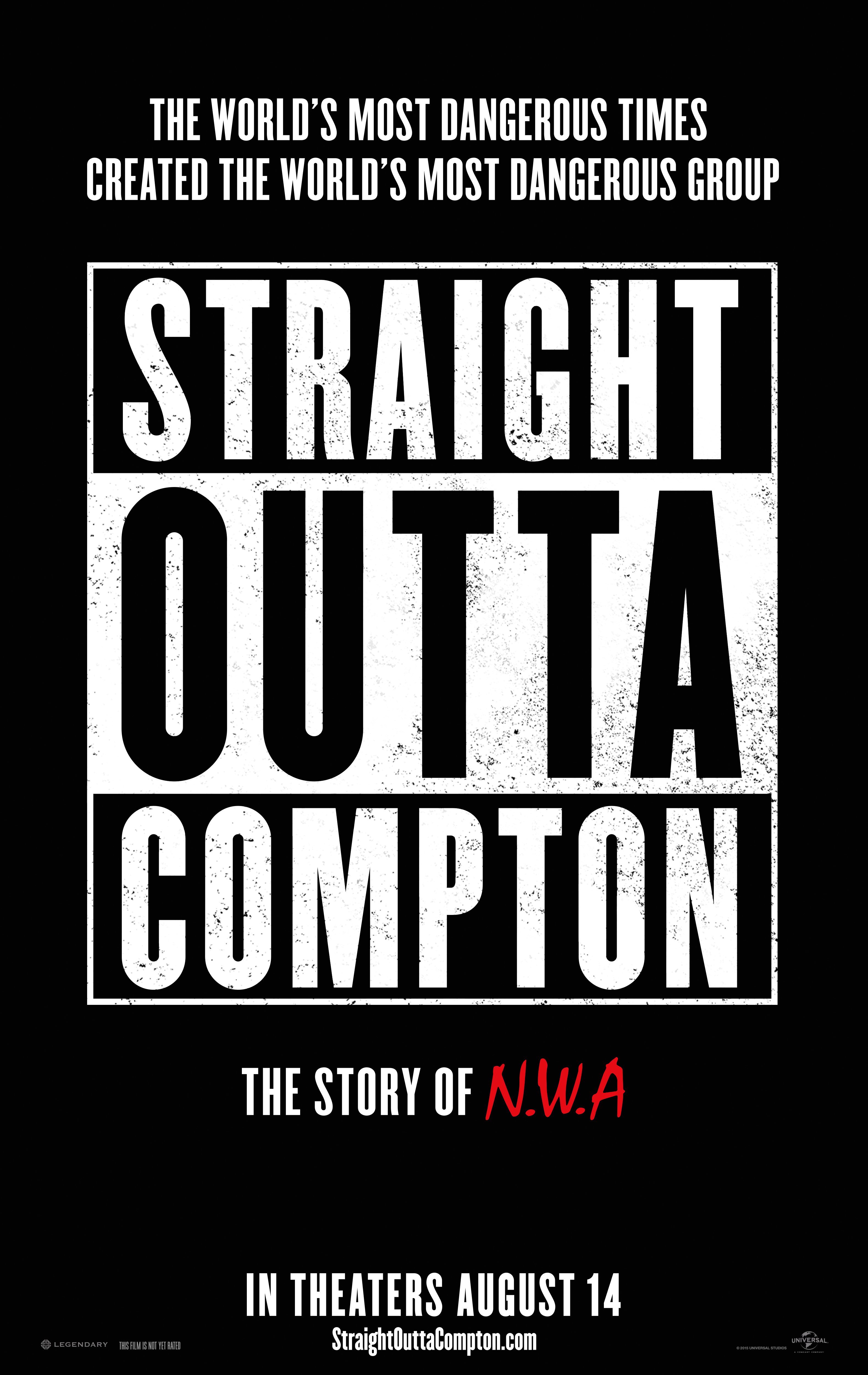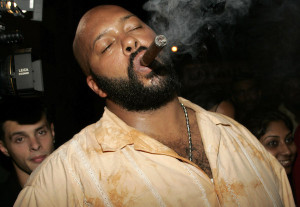STRAIGHT OUTTA COMPTON Review
Director: F. Gary Gray
Genre: Music Biopic
Release: 2015
If you’re a fan of hip hop at all, N.W.A.’s 1988 gangsta rap classic STRAIGHT OUTTA COMPTON holds about as much weight as ABBEY ROAD. You may love it, you may not, but its permanent place in the forging of an entire genre is undeniable. To this day, it holds up as a fundamentally raw and incendiary record. There certainly is a way to take N.W.A.’s music and turn it into a suburban glorification of the hood, but dig just a little deeper and you’ll find five individuals demanding that they be heard, and refusing to censor themselves until they are. Like a lot of truly subversive work, the acceptance by mainstream culture put a damper on the trajectory of N.W.A.; in-fighting over record contracts and the untimely death of Eazy-E derailed what could have been a very legitimate fight against the powers that be.

This likely wasn’t what Eazy-E was rapping for
What ultimately causes F. Gary Gray’s STRAIGHT OUTTA COMPTON to fall flat is that it gets caught up in the very same things which caused N.W.A to fizzle out. Rather than staying focused on why this group of young men were so angry and felt the need to turn the world’s attention to Compton, CA in the first place, the film follows a boring and predictable trajectory of a group of musicians going from rags-to-riches, hating and distrusting each other as money, drugs, and women come front and center into their lives, attempting to reconcile their relationships and make it all about the music again, all before tragedy strikes. It’s the exact same plot as the South Park episode, “Guitar Queer-o”, an episode where the whole joke is that this story is so predictable, anybody who plays Guitar Hero can experience it.

A pinnacle of social commentary
The film has a fantastic, harrowing opening, in which Eazy-E is in a crack den, about to get shot over an argument about money when the cops show up in an armored vehicle and raid the place. This is the most extreme and well-done scene illustrating the dangers and chaos of living in one of the most violent cities in America, a slice of social realism that the film doesn’t ever attempt to bring back. It’s difficult to not draw comparisons to 8 MILE, a film which is unrelenting in its portrayal of the tough situation of its protagonist as he moves towards rap superstardom. The energy and passion which permeate through the album STRAIGHT OUTTA COMPTON, the struggles Ice Cube, Dr. Dre, and Eazy-E endured fade into the background in favor of lengthy scenes about the process of recording the titular album and the back-stabbing negotiations of N.W.A’s manager Jerry Heller. It’s unsatisfying, at least to a hip-hop fan, to not see our heroes struggle immensely, only to triumph. The main appeal of hip-hop is its aggressive need to grab ahold of a difficult life with a microphone and a voice, and force that life into being what you want. When the struggle to get to the studio is so poorly explored, the rest of the group’s rise and fall has very little impact.
Frustratingly, Jerry Heller remains the film’s primary (uninteresting) antagonist, even as Suge Knight plays a more important role (which is a huge letdown, considering that Suge Knight couldn’t be a better cartoon villain had 2Pac worn a cape).
A sane, rational business man
As the story progresses, a sense of cohesive narrative, of wants and needs driving the characters to behave the way they do, never really formulates.
Instead, the film presents highlights from the story of the group’s career, while being careful not to portray Dre, Cube, or Eazy-E in a bad light. After all, Ice Cube and Dr. Dre were producers, along with Eazy-E’s widow, Tomica Woods-Wright, so there is never a solid example of the characters’ flaws and hubris negatively affecting them, despite the fact that these things were exactly what lead to the dissolution of N.W.A. Furthermore, the hard partying which came with N.W.A’s success is never directly correlated with Eazy-E’s contraction of HIV, just one of many instances where the film fails to connect the dots between character and plot.
If there is one thing STRAIGHT OUTTA COMPTON absolutely succeeds in, it is a remarkable job in casting actors who look exactly like the figures they’re portraying. Ice Cube’s son, O’Shea Jackson Jr., gives a very convincing portrayal of his father’s angry focus, Jason Mitchell nails Eazy-E’s incredibly distinctive voice, and Corey Hawkins accurately recreates Dr. Dre’s intensity and poise. The actors are hampered, however, by scenes burdened with incredibly clumsy and melodramatic dialogue, making all of their performances lackluster at one point or another.
Probably the most interesting thing to take away from STRAIGHT OUTTA COMPTON is that a story should rarely be told by the people who lived it. Not only were Ice Cube and Dr. Dre heavily involved, F. Gary Gray directed Ice Cube’s music videos in the 90s, in addition to films like FRIDAY. The whole film has a sense of not being able to see the bigger picture, so wrapped up in reenacting scenes that it fails to find the connective moments to hold the scenes together. There’s no denying the lasting talent of Dr. Dre and Ice Cube as artists, but to be effective storytellers, some objective distance was most likely necessary. Ice Cube is portrayed at the beginning of the film as sitting in the back of the school bus and watching the ghetto unfold around him, and that’s the sense his raps usually conveyed, a man reporting live from the hood while not completely caught up in it himself. In this case, maybe a more outside observer could have told his story better than he could.
Verdict: Do Not Recommend





